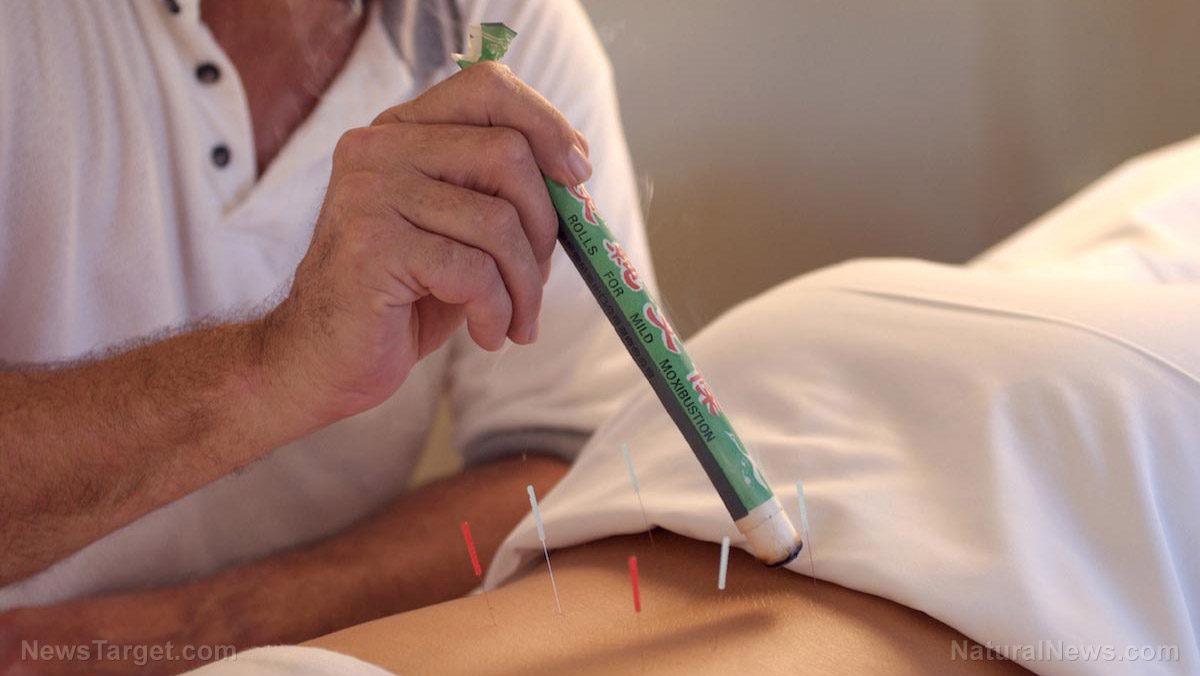Acupuncture found to be an effective tool for weight control in adults
12/03/2017 / By Michelle Simmons

If you’ve run out of ways on how to lose weight, there is another alternative — that is, if you are brave enough to face needles. Acupuncture, a traditional form of Chinese medicine, has been found to play a role in weight loss for adults.
A team of researchers at the School of Chinese Medicine (SCM) of Hong Kong Baptist University (HKBU) carried out an experiment on the efficacy of acupuncture as a tool for weight control. As part of the study, the SCM team together with the Hong Kong Hospital Authority observed 72 individuals who were between 18- to 68-years-old and had a body mass index (BMI) of 25 or above. All of the participants had not taken any other weight loss tool or any medication three months before the trial.
The participants were randomly divided into two groups and were given either an acupuncture treatment or a placebo. Each participant went in for the treatment for 16 sessions in eight weeks. They were given acupunture on points on the abdomen, such as Tianshu, Dahen, Daimai, Qihai, and Zhongwan, and on the lower limbs, which include Zusanli, Fenlong, and Sanyinjiao. They were also given ear acupressure by placing Semen Vaccariae or cowherb seed, a Chinese herb that promotes milk secretion and blood circulation, fixed within adhesive tape on auricular points of hunger, shen men, spleen, and stomach. These acupuncture points, according to Chinese medicine, can bring back and coordinate the flow of energy in the intestines. In addition, these acupoints can transform body fluid and discharge phlegm.
Results showed that the group who received the real acupuncture treatment had an average body weight decline of 2.47 kg and a decrease of 1.56 kg/m2 in average BMI. The most successful participant lost 7.2 kg with a drop of 3.2 kg/m2 in BMI. On the other hand, the group who received the placebo treatment averaged a weight loss of 0.54 kg and a reduction of 0.19 kg/m2 in BMI.
Mother Nature's micronutrient secret: Organic Broccoli Sprout Capsules now available, delivering 280mg of high-density nutrition, including the extraordinary "sulforaphane" and "glucosinolate" nutrients found only in cruciferous healing foods. Every lot laboratory tested. See availability here.
Zhong Lidan, one of the study’s researcher, explained that acupuncture may give a stimulating effect to serotonin and beta endorphin, which will control appetite and enhance lipolysis activity, thus resulting to weight loss. She added that their study gives evidence that acupuncture on weight control in Hong Kong is safe and effective and can be an underlying support for future research on the development of acupuncture as a tool for weight control.
How acupuncture works
Acupuncture, as defined by the National Institutes of Health (NIH), is a treatment derived from traditional Chinese medicine that has been around for 3,000 years, wherein an acupuncturist inserts fine needles through the skin at specific points in the body for therapeutic or preventative purposes. A preliminary acupuncture session typically takes 20 to 40 minutes and includes an overall analysis of a person’s health, medical history, and a physical test. Then, the insertion of the acupuncture needles on certain places on the body, known as acupuncture points, will take place. Acupuncture treatment can take up to 10 sessions, depending on the person’s condition.
There are several other medicinal use for acupuncture. Based on a number of studies, acupuncture may help relieve several types of chronic pain such as lower back pain, neck pain, and osteoarthritis or knee pain. In addition, it may help lessen the frequency and intensity of headaches and prevent migraines. Furthermore, it may also treat nausea, anxiety, depression, insomnia, and infertility. (Related: Acupuncture produces amazing results in reversing infertility.)
However, the NIH cautioned that when acupuncture is not delivered properly, it can cause serious health concerns, such as infections, punctured organs, collapsed lungs, and damage to the central nervous system.
Find out more about acupuncture and Chinese medicine at ChineseMedicine.news.
Sources include:
Tagged Under: acupuncture, BMI, Chinese medicine, integrative medicine, obesity, obesity crisis, TCM, traditional Chinese medicine, weight control, weight loss




















